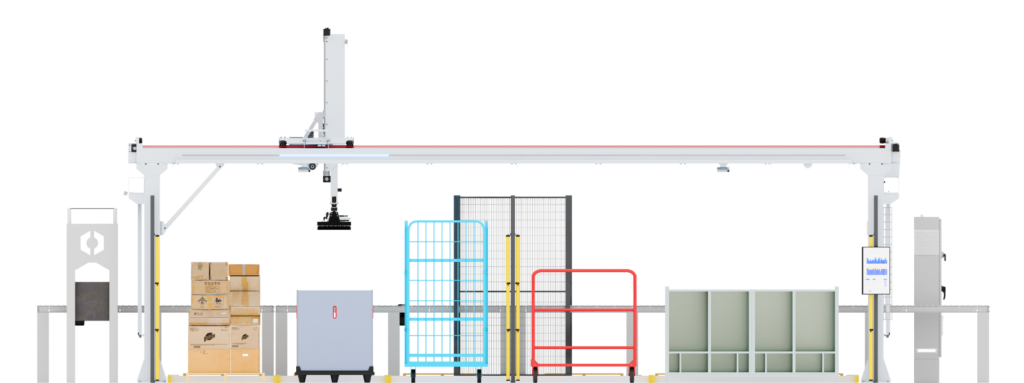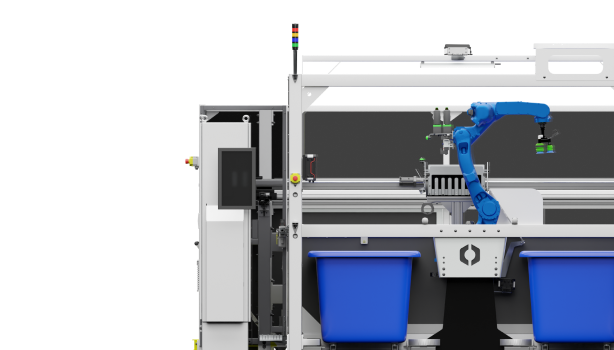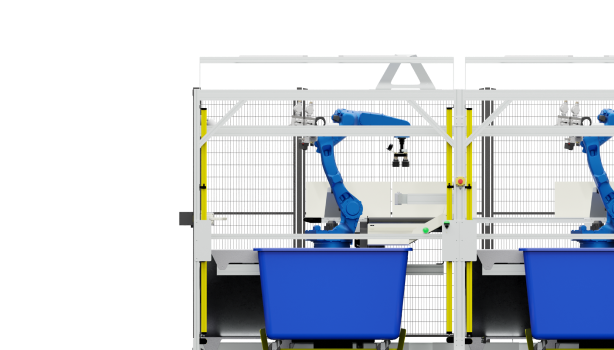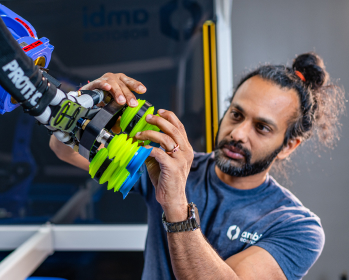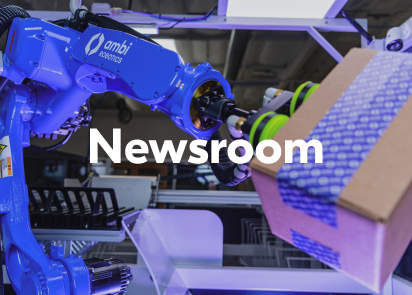Blog
How Automation Enables New Parcel Shippers to Compete for Big Business
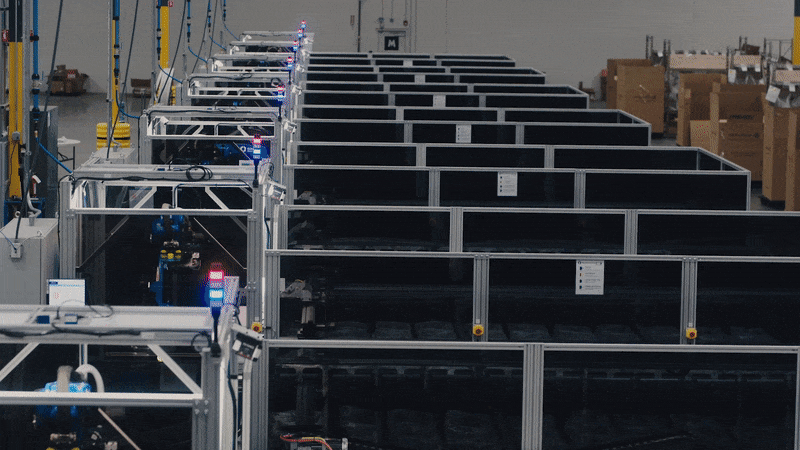
The rise of automation has had a profound impact on many industries, and one of the areas where it has been particularly transformative is the parcel shipping and process sortation market. In the past, the parcel market was dominated by large, established players, but the adoption of automation has enabled new companies to enter the sector and compete for big business.
One of the key reasons for this transformation is the growth of ecommerce. The rise of online shopping has led to a surge in demand for parcel delivery services, creating opportunities for non-traditional businesses to join the industry and go toe-to-toe with established leaders.
Indeed, the global parcel delivery market is expected to see a compound annual growth rate of 4.2% in the coming years, hitting a projected $630 billion by 2029 – an increase of nearly $200 billion from 2021. As of now, that growth margin is still up for grabs.
Growing Opportunities = Rising Challenges
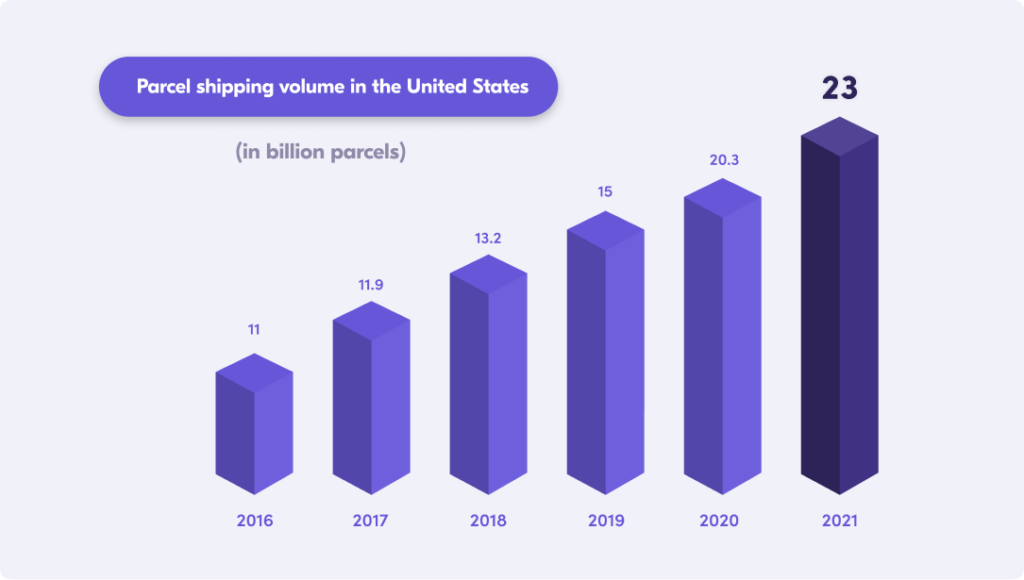
One of the key challenges for new businesses in the parcel market is the need to efficiently and cost-effectively handle large volumes of parcels. This challenge is becoming more daunting by the day. According to the Pitney Bowes Parcel Shipping Index, an estimated 23 billion parcels were shipped in the U.S. in 2021, with year-to-year parcel volume in the U.S. jumping by 37% over 2020.
To put those numbers in context, the average U.S. citizen generated 61 parcels in 2020, up from 45 in 2019. Meanwhile, an average of 4,160 parcels per second were shipped in 2020 across 13 major global markets, including the U.S. and Canada. As the world becomes more digital and e-commerce and omnichannel fulfillment continue their relentless growth, those numbers will surely only increase.
It comes down to shippers – both established and new – handling an ever-growing volume of products or parcels, maintaining a throughput that meets the daily demands, and having parcels accurately reach destinations where the customer expects to be delighted with fast and accurate deliveries. And they must do this at volumes that are increasingly out of reach for legacy manual processes – especially as labor becomes harder to find and even harder to keep.
Innovation & Automation Opens the Market to New Players
This is where automation comes in. Automation technologies, such as parcel-sorting robots, can help new players to handle high volumes of parcels and compete with larger rivals.
Ambi Robotics enables new players to compete in the parcel market with our AmbiSort parcel-sorting robots. The AmbiSort robots are modular and flexible and can be easily integrated into existing facilities without the need for expensive modifications. This allows new ecommerce businesses to take on excess volumes that larger companies may not be able to handle and helps them to grow and compete. Plus, AI-enabled Sim2Real virtual training means our robots are ready to sort on day one.
Not only is Ambi Robotics empowering new market entrants through technology, but is also pioneering more affordable ways to enable that evolution. Traditional parcel sortation robotic systems usually require an enormous up-front investment – a significant hurdle in both good and bad economic times that sets a bar at which organizations can enter the market.
Ambi Robotics’ Robots-as-a-Service (RaaS) arrangements package automates solutions as a service with a monthly fee that can be treated as an operating cost, rather than spending large amounts of money as a capital expenditure. RaaS can help bring technology upgrades to non-traditional businesses, quickly, allowing them to compete at an advanced level not previously attainable.
Solutions like RaaS allow warehouses to reimagine how the product/parcel flow is handled and, where it makes sense, move to an autonomous solution earlier. It can also speed up ROI from being a multi-year achievement to one that’s attained much more quickly. In fact, Pitney Bowes leveraged a RaaS agreement with Ambi Robotics to achieve ROI on the very first day of deployment.
Making automation an operating expense instead of a capital item can also help move it through internal business processes more quickly and with better odds of success. Also, in a service arrangement, you don’t need your own team to build and manage these systems. A RaaS deal provides and covers engineers, spare parts, and even ongoing system upgrades. In short, new businesses have previously-unimaginable opportunities to enter the shipping market and effectively compete with larger companies. Advanced AI-powered robotic technologies, such as Ambi Robotics’ AmbiSort parcel-sorting robots, empower these new players to handle high volumes of parcels and grow their businesses. This is a positive development for the parcel market, as it allows for more competition and innovation, ultimately leading to better services for customers.
Ready for RaaS?
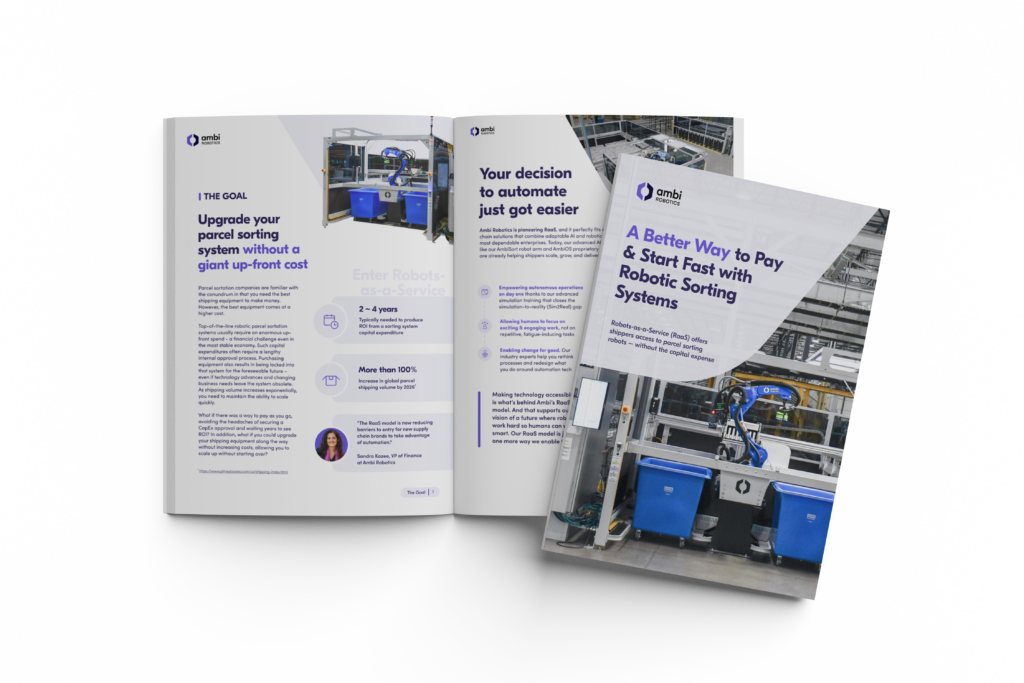
With RaaS, new shippers can now access automation with increased accessibility to new tech, contradictory to the old-school CapEx approach that only big companies could afford. Are you ready to start your automation journey? We invite you to download our guide to learn more about how RaaS can take your operations to the next level.
Related Articles
-
 Blog | 07.08.2025Prime Day Is Now a Four-Day Spectacle And One Million Robots Are Running the ShowPrime Day began as a 24-hour sale. Today, it’s a $24 billion, four-day event powered by one million robots and an upskilled workforce built to meet modern customer demand.
Blog | 07.08.2025Prime Day Is Now a Four-Day Spectacle And One Million Robots Are Running the ShowPrime Day began as a 24-hour sale. Today, it’s a $24 billion, four-day event powered by one million robots and an upskilled workforce built to meet modern customer demand. -
 Blog | 01.30.2025PRIME-1: Scaling Large Robot Data for Industrial ReliabilityWe've achieved critical mass of high-quality data and launched PRIME-1, an AI foundation model for warehouse operations.
Blog | 01.30.2025PRIME-1: Scaling Large Robot Data for Industrial ReliabilityWe've achieved critical mass of high-quality data and launched PRIME-1, an AI foundation model for warehouse operations. -
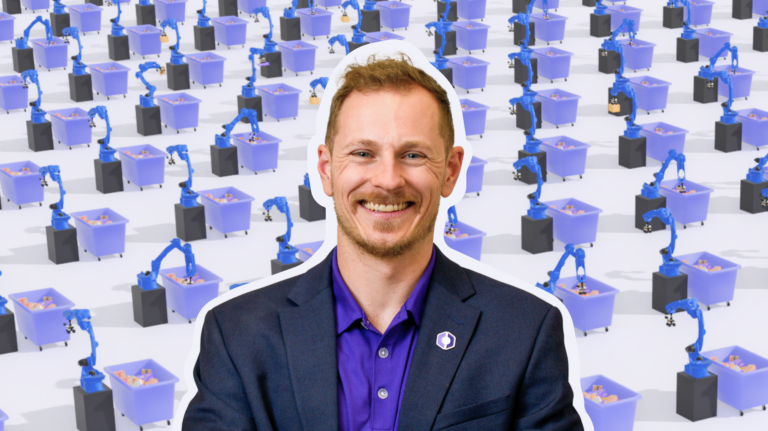 Blog | 11.22.2024AI-Powered Robots Deliver Reliable Performance During Peak Holiday Shipping SeasonDiscover how AI-powered robots revolutionize peak holiday season with enhanced speed, accuracy, and cost savings year over year.
Blog | 11.22.2024AI-Powered Robots Deliver Reliable Performance During Peak Holiday Shipping SeasonDiscover how AI-powered robots revolutionize peak holiday season with enhanced speed, accuracy, and cost savings year over year.

